When I was asked to find out more about Kohai—“the first Malaysian eSports community matchmaking platform”. I was immediately amused, and intrigued. “Matchmaking”? For “eSports”? Kohai officially goes live as a platform that “matches eSports enthusiasts to experienced players”—but even after asking them some follow up questions after their launch, there were a few things that didn’t really sit right with me.
First off… what is it?
The word Kohai sources inspiration from the Japanese social relation system of senpai-kohai, translating to senior-junior. Right out the gate, this already solidifies my initial thought of wondering if the platform would be a strange and particular dating site. Well… it isn’t. At least, I hope people don’t use it to find dates. But I’ll circle back on that again later.
The platform involves two apps—one for Gamers (iOS, Android) and one for Partners (iOS, Android). The app for Partners will allow users to earn while they play, and the app for Gamers will let users interact with players of a higher still level (AKA the Partners).
Kohai offers a “pay-to-learn” system for Gamers, where users would pick out the kind of help they need (based on the “level” they are in now) and choose from a selection of Partners to game or train with for a fee. On the other side of the coin, Partners would be able to earn a side income by playing or coaching Gamers.
Wait… there’s a fee?
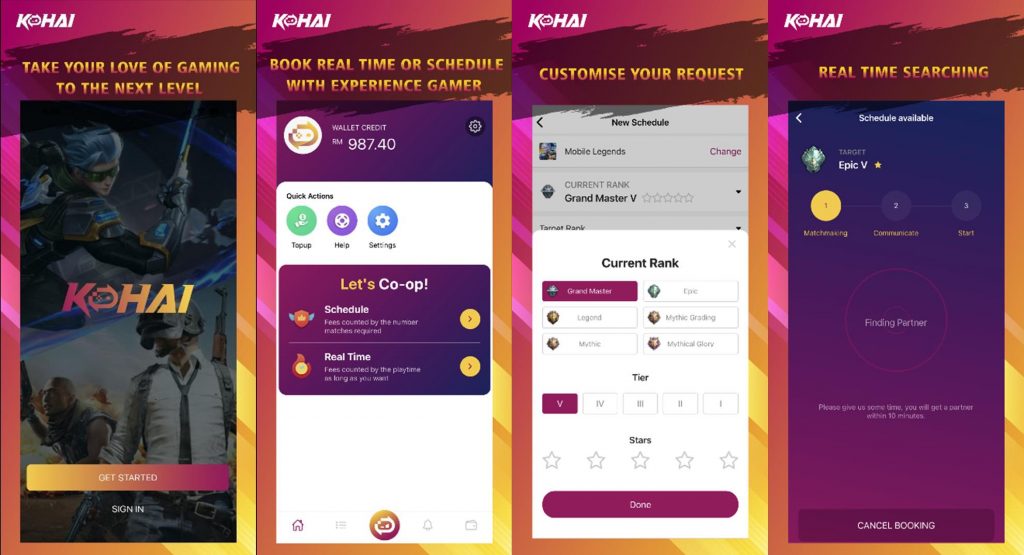
Gamers will have the option to choose between “real-time” sessions or “scheduled gaming” sessions. In “real-time” sessions, Games can select a rank or tier they want to achieve and get paired with a Partner at a “fixed rate of RM10 per hour”. For “scheduled” sessions, Gamers can pre-schedule games with their Partner, and the rates are based on factors like “
desired ranking, character requests, match length and others”. Partners are allocated “a maximum of 72 hours” to complete a Gamer’s match or training request.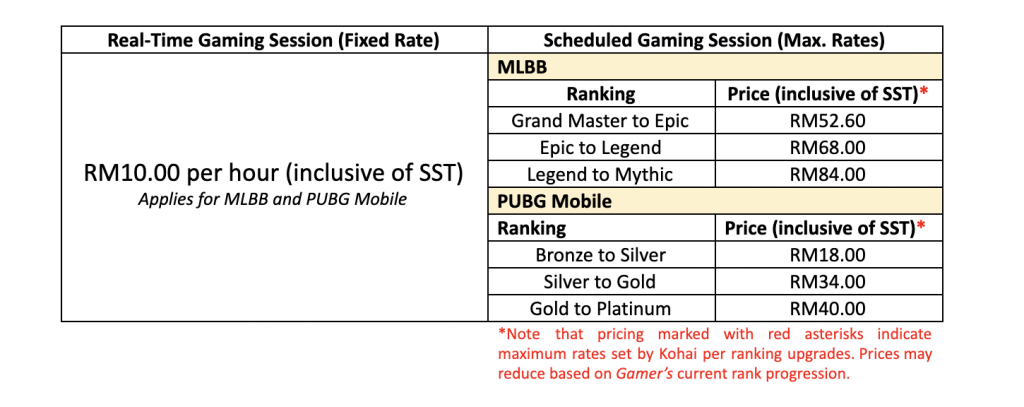
Kohai also explains that Kohai’s sytem will “randomly match” Gamers to Partners via “its own matchmaking algorithm”. This was implemented to “
create a fairer and more enjoyable Kohai experience” and “establish fair and equal opportunities for all Partners on the platform”.So, there were still so many questions I had for Kohai.
I felt like a worried aunt, more than anything, as I read through their information. How does their “matchmaking platform” work? And is there even an age restriction for Gamers, especially as it involves real people and actual money—targetting Gamers which means that it can involve a lot of very young users?You’re paired with a “random” Partner… but through a “matchmaking algorithm”?
According to Kohai, their “matchmaking system” lets Gamers get “randomly matched with Partners via its own matchmaking algorithm”. All Gamers will need to do is select the rank/tier they desire to achieve, and several factors such as desired ranking, character requests, match length and others.
The platform also announced that they are partnering with professional eSports team Geek Fam, where they will be among the official Partners that gamers can be paired up with. Kohai mentions that doing so will give “all Gamers the opportunity to play with, learn or train with Geek Fam players on both Mobile Legends: Bang Bang (MLBB) and PlayerUnknown’s Battlegrounds (PUBG Mobile)”—the only two games offered by their system, so far.
I first asked Kohai why they used the word “matchmaking” in the first place to describe their platform, as it does sound vaguely like a dating app. They responded saying that the word is “often used” in the MOBA community.
“Matchmaking” in the MOBA community is used for
“calculating the relative skill levels of players” through the Elo rating system, where the game’s algorithm will try and match you with or against other players in the same skill bracket. So… is Kohai using the Elo rating system to match their players?“While our platform does not use Elo, it does allow Gamers to select the preferred roles of Partners (such as Tank, Marksmen, Support, etc.), which then runs through our algorithm that is programmed to match a Partner that is a minimum of 2 levels higher than the requesting Gamer, to ensure Gamers are able to get a good gaming and competitive experience,” wrote Kohai.
They did not specify what kind of algorithm they use to match Gamers with the Partners, but they’re clear that they’re not using the Elo system. So, why use the word “matchmaking”, a word known in the MOBA community for matching players of a similar skill, when you’re pairing people “at random”?
The lack of specific age restrictions
Fellow journalists pointed out during the press conference that the industry can be “quite toxic”—which refers to “entitled players treating a team experience as a solo experience”. However, Kohai replied saying that they try to combat it by “pairing Gamers with Partners just a couple levels higher”, which is fine… but the problem can still persist in those situations.
Kohai also mentioned that “most Partners have serious guidelines” and they would be “screened” before becoming a Partner. It can help fight toxicity during gaming, and also for dealing with potential predators in the platform.
It’s pretty safe to say that the MOBA community can be filled with pretty young and impressionable users. And platforms that attract younger users can also attract predators to the same place. Several YouTubers have been reported as sexual predators and groomers, taking advantage of their younger fans—and the same can happen with the Kohai/Senpai dynamic encouraged by the gaming platform. It’s probably why I was initially so hesitant with their use of words like “Kohai” and “matchmaking”—it’s a little sus.This can be made easier to handle if Kohai has a proper age restriction method. The Kohai Partner app has an obvious stricter age restriction as seen in the iOS app store. You need to be at least 17 years old to be a Partner.
However, the Kohai Gamer app lets users aged 4 and above to join the app. There also isn’t even an area during the registration process where they ask you your age. You can, however, type in your number, email, and select a gender.
“To clarify, Kohai only implements a minimum age of 16 years old for our Partners, in adherence to the Malaysian government regulations for workers. For Gamers, we do not set a minimum age requirement as we do not want to discourage or limit Malaysians from getting into eSports at a young age. However, as Gamers will require to make a payment (via debit card, credit card or GrabPay) in order to play with Partners, our system is designed to require the cardholder or GrabPay owner’s approval to confirm payment via TAC code, every time a request is made. We do urge parents or guardians to be aware of and involved in the transactions made by kids or teenagers under their care on our platform,” responded Kohai.
Kohai also says that they have “zero tolerance” to something like predators using the app “if it happens”. They also state that they “take community safety seriously”.
So, is this the best solution to the problem? Do they consider child safety a main priority if what they are doing is to just “
urge parents or guardians to be aware of” what their kid is doing. I mean sure, child-care isn’t Kohai’s responsibility. But letting young users to use the platform will need them to take more responsibility for what can potentially happen if they don’t regulate their Partners or users enough.Can Kohai help with the future of eSports in Malaysia?
Kohai certainly has the ambition of doing so, as they “aspire to make eSports more competitive by leveraging the Malaysian eSports community”. They also “hope to work closely with partners within the industry and relevant government sectors to achieve the next level of eSports”.
Currently, Kohai has 43,000 users, and 3,000 of them are Partners. According to Kohai, Malaysia “has produced some great eSports players and teams”, and that “there is no reason we can’t see more of that in the future”.
But with great ambition comes great responsibility, and it’s a huge responsibility to help much of the younger community in Malaysia who genuinely do want a future with the eSports industry. Presenting a platform that doesn’t have outstanding regulations to kids can come off as a huge problem rather than an advantage for the industry in the coming years.
Even social media sites like TikTok have features that look out for younger users. For example, TikTok has been cultivating age-appropriate experiences for younger users by making accounts made by people under 16 private by default, reserving direct messaging for people 16 and older.
But, what do you think?
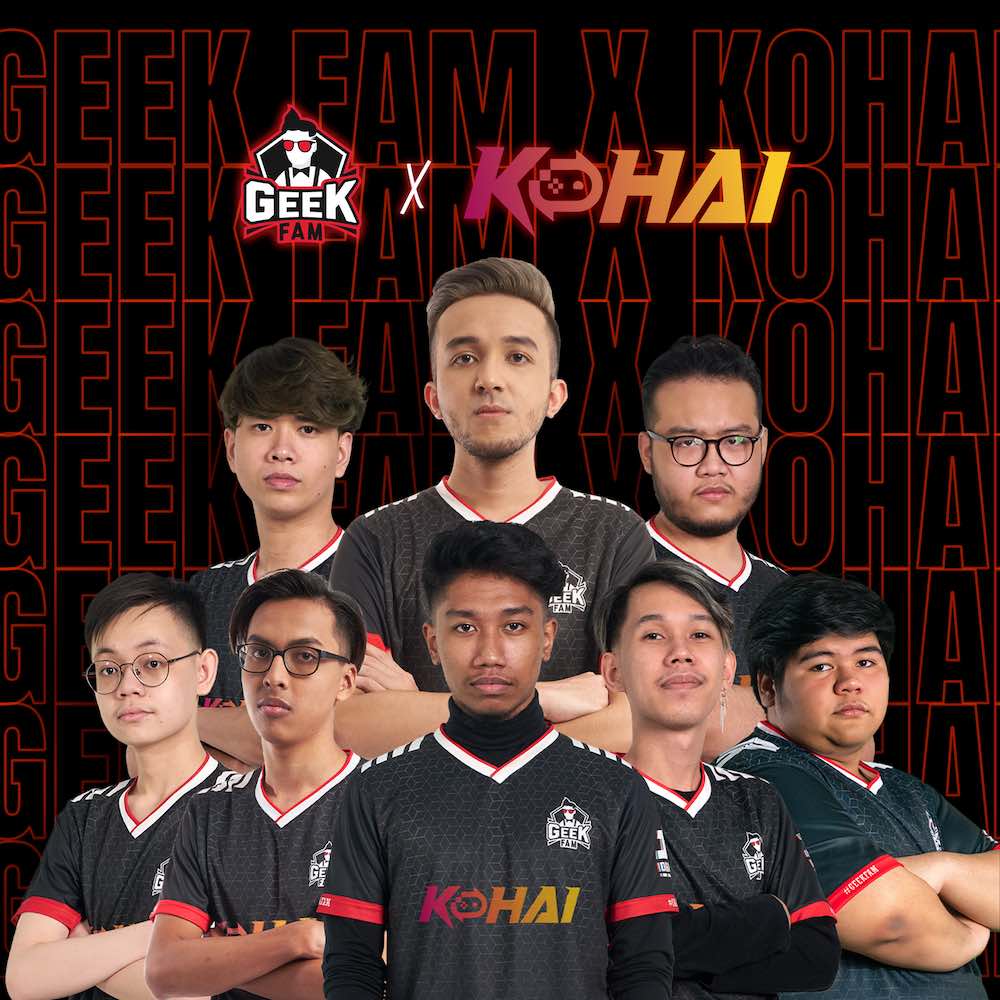
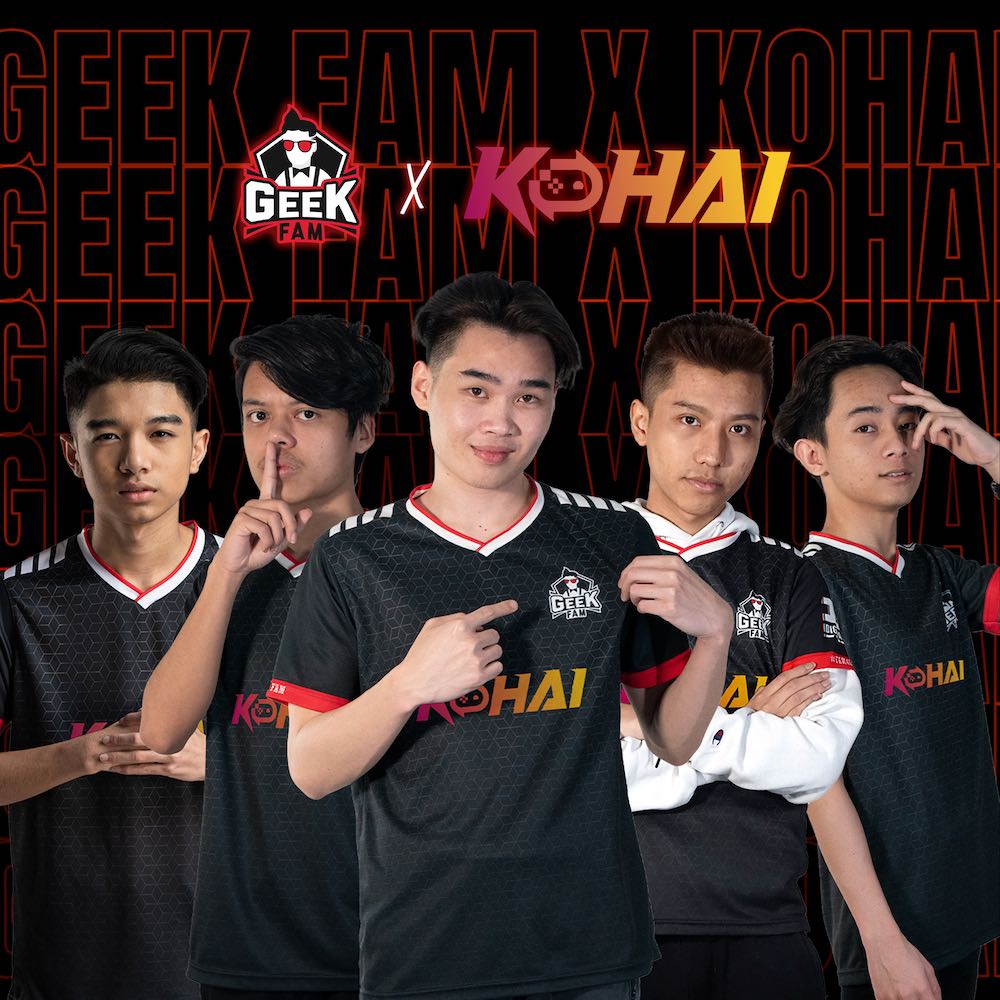
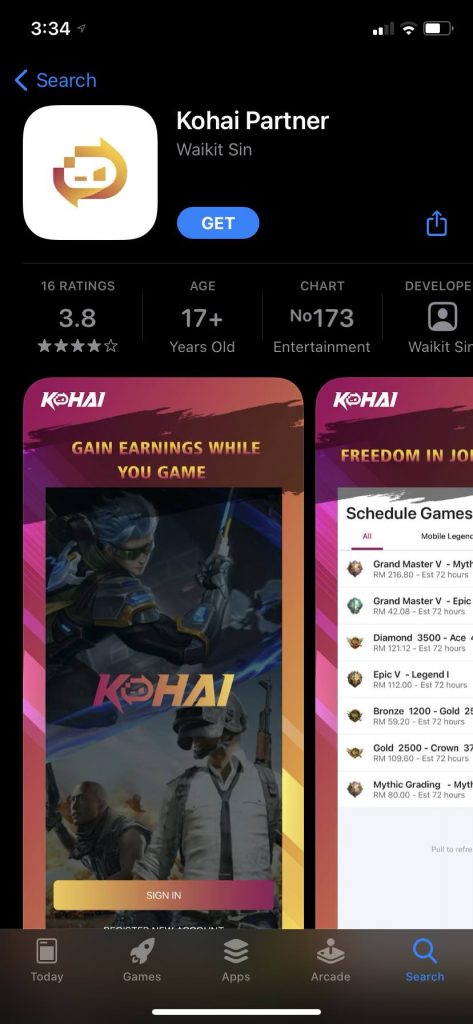
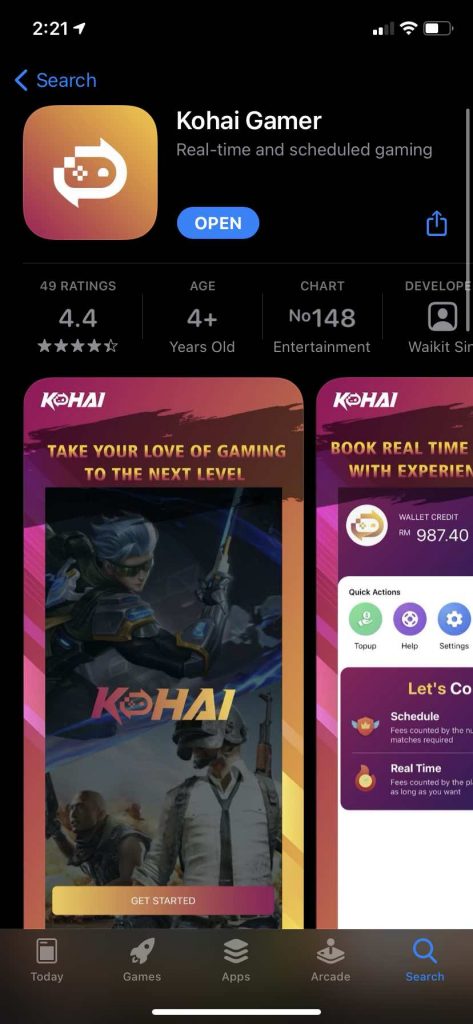
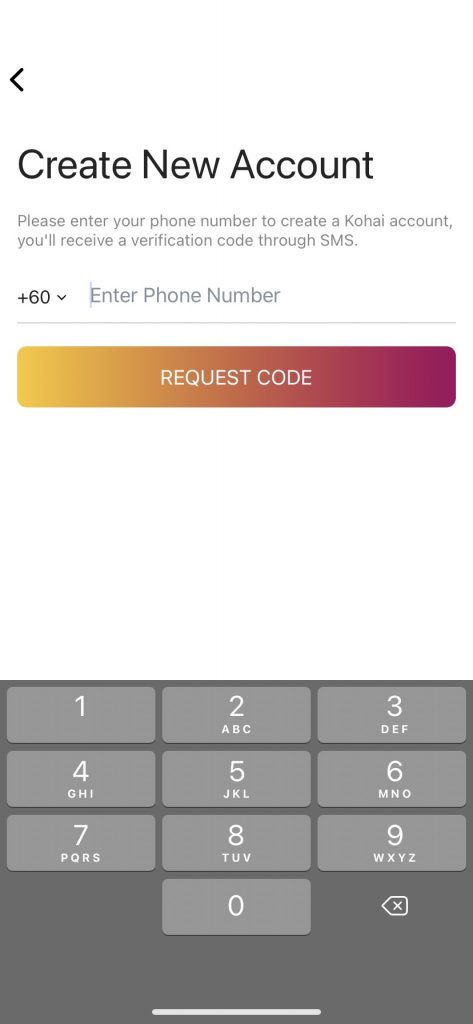
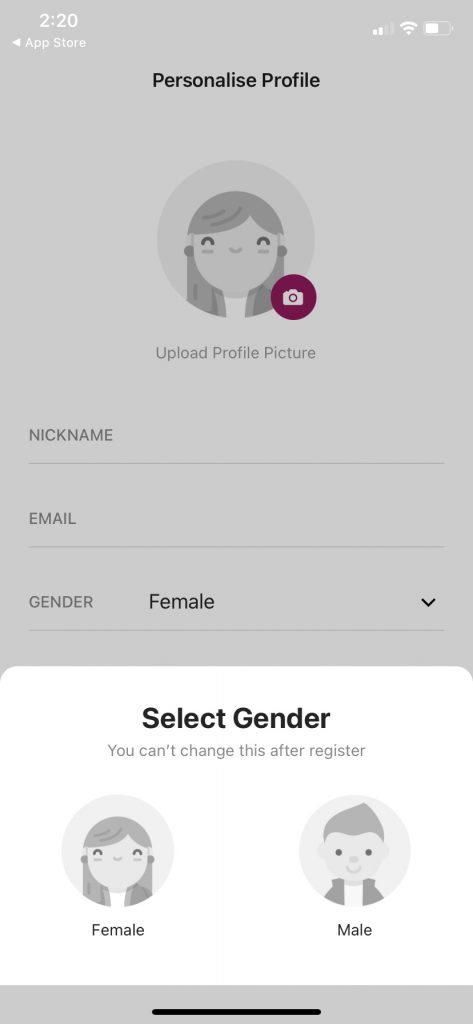
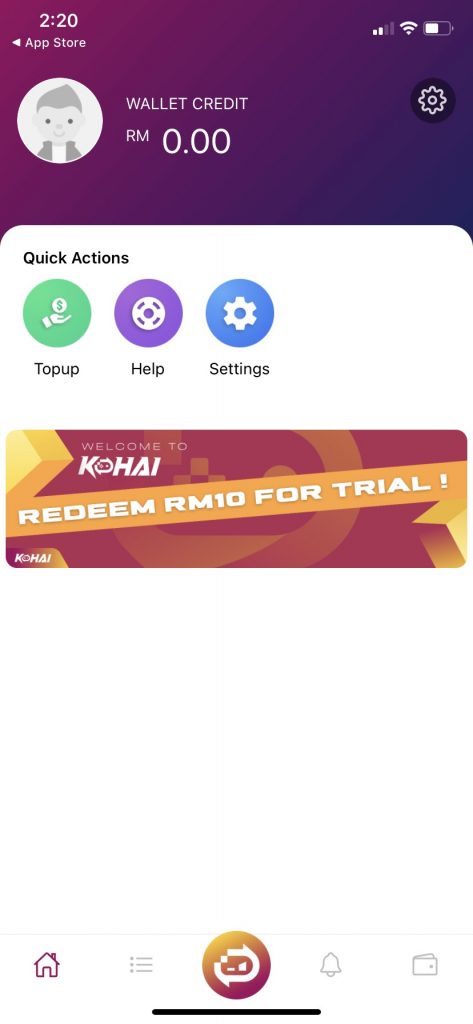
0 comments :
Post a Comment